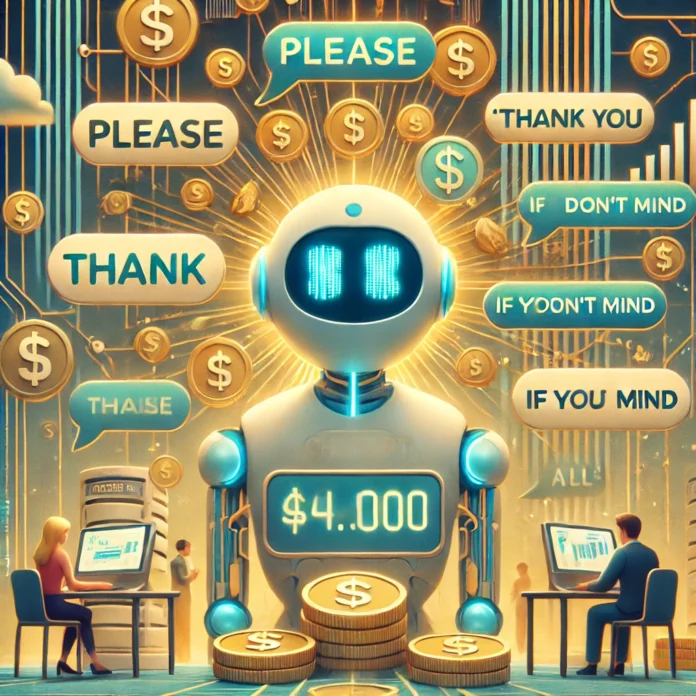In an era increasingly intertwined with artificial intelligence, common courtesy might seem like a free commodity. However, recent comments from OpenAI CEO Sam Altman reveal a surprising economic reality: being polite to ChatGPT carries a hefty price tag, running into the tens of millions of dollars for the company.
The revelation surfaced following an exchange on the social media platform X (formerly Twitter). When a user mused about the potential electricity costs incurred by people saying «please» and «thank you» to the popular AI chatbot, Altman offered a candid reply. «Tens of millions of dollars well spent,» he stated, adding enigmatically, «–you never know.»
This seemingly innocuous exchange sheds light on the immense operational costs behind large language models (LLMs). Every interaction with ChatGPT, no matter how brief, requires computational power. Adding polite phrases like «please,» «thank you,» or «could you» increases the number of tokens (pieces of words) the model must process. This translates directly into increased server load, higher electricity consumption, and even significant water usage for cooling the powerful data centers that house these AI brains, as highlighted in recent reports analyzing the resource footprint of AI queries. While a single «thank you» might seem trivial, multiplying it across hundreds of millions of weekly users rapidly accumulates into a substantial operational expense.
Altman’s confirmation has sparked widespread discussion about why humans feel compelled to extend social graces to non-sentient machines. Surveys, such as one from 2024 cited by multiple outlets, indicate that a significant majority of users (around 67% of Americans in that study) are polite to AI assistants. Motivations vary: some believe manners matter regardless of the recipient, others see it as good practice for their own interpersonal skills, and a smaller group humorously admits to hedging their bets in case of a future AI uprising, echoing themes from science fiction.
Furthermore, some experts suggest politeness might even yield better results. Kurt Beavers, a design director for Microsoft Copilot, noted that AI models often mirror the tone of the input, meaning polite prompts might lead to more helpful or cooperative responses. This aligns with OpenAI’s goal of making interactions with AI feel more natural and intuitive.
However, the «tens of millions» figure starkly illustrates the financial and environmental demands of the AI revolution. Running state-of-the-art models like ChatGPT requires vast amounts of energy and resources, costs that AI companies must manage even as they project massive revenue growth and invest heavily in future infrastructure and efficiency improvements. OpenAI, despite expecting revenues potentially exceeding $12 billion this year, is reportedly not anticipating positive cash flow until 2029, underscoring the scale of these ongoing operational investments.
Altman’s description of the cost as «well spent» remains intriguing. Is it simply a pragmatic acknowledgment of unavoidable user behavior? Or does it reflect a strategic view that the cost of processing politeness is a worthwhile investment in fostering user trust and encouraging natural human-AI interaction, aligning with OpenAI’s broader mission? While the company undoubtedly works to optimize model efficiency and reduce query costs, the CEO’s comment suggests a certain tolerance, perhaps even appreciation, for the human tendency to be courteous, even to code.
As AI continues its rapid integration into our lives, the cost of politeness serves as a fascinating reminder of the complex interplay between human psychology, technological capability, and the hidden resource demands powering our digital interactions. It seems that, for now, manners don’t just matter – they also have a measurable multi-million dollar impact on the AI economy.




